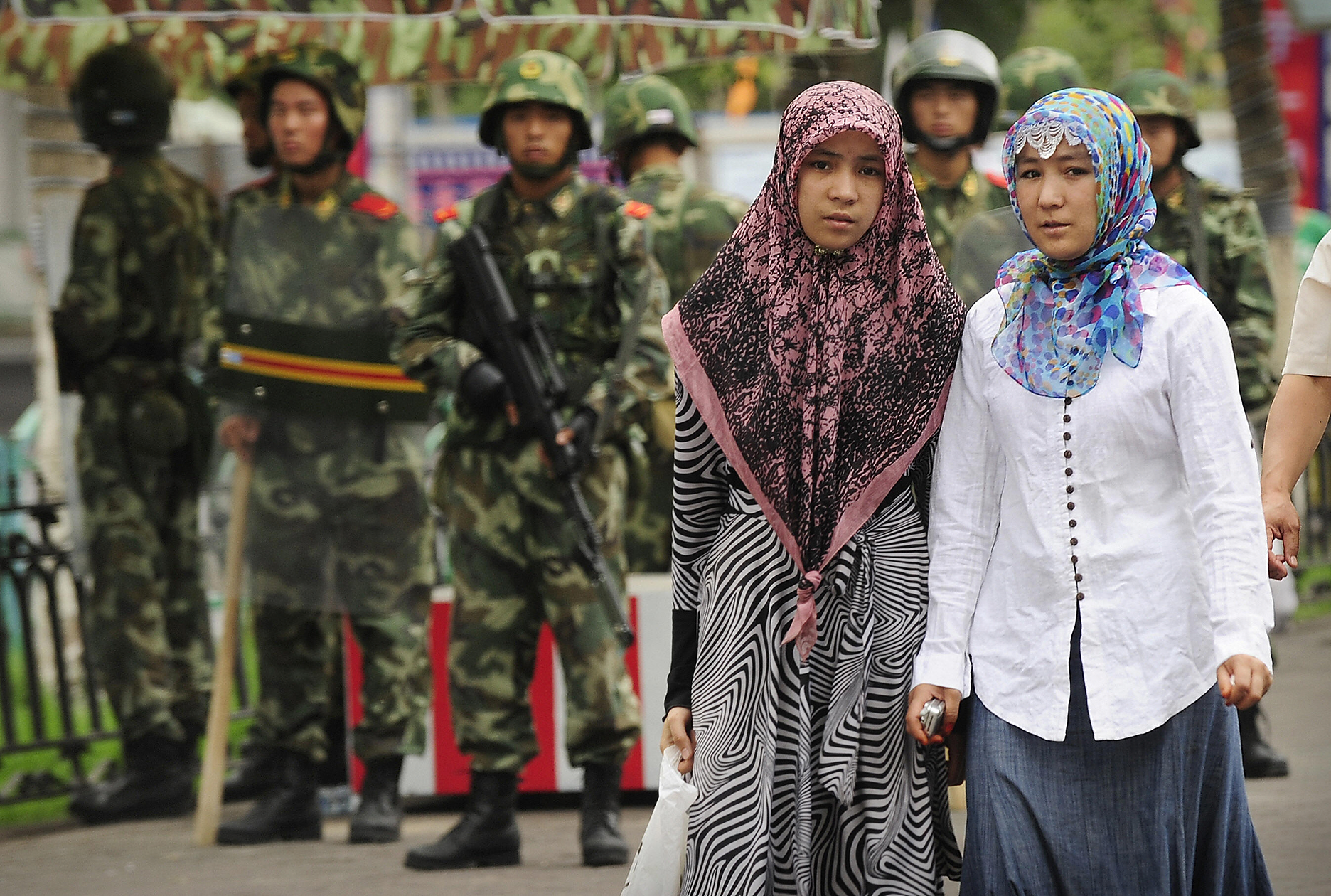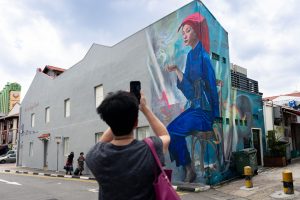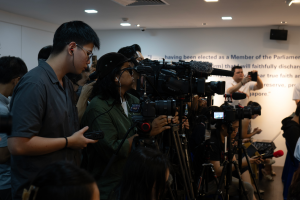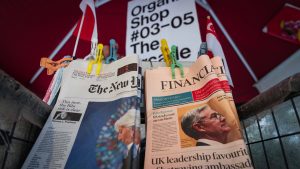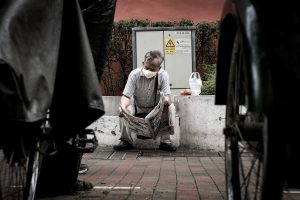“Singapore’s National Broadsheet publishes 2 op-eds, one praising China’s Uyghur concentration camps and another condemning Hong Kong pro-democracy protests.”
The ‘National Broadsheet’ that they are referring to is, in fact, The Straits Times. Of course, I was a little hesitant to rely on said forums for much nuance or insight. Singaporeans and foreigners alike were leaping over themselves to refute the allegations or condemn the nation.
ST’s apparent take on the Uyghur camps differ greatly from that of other news outlets that universally condemn them, such as The Independent, VICE News and CNN.
Could ST be *gasp* Fake News?
The implied accusation was startling enough to warrant my attention, and this Matryoshka doll of a headline—a story about a story—made it a case most intriguing.
But before we go on, I must get something out of the way:
The phrase ‘fake news’ is problematic, overused, and useless as an objective term. The prima facie meaning of ‘fake news’ has been completely corrupted by Donald Trump’s frequent use of the term to denigrate any news outlet that factually reports on the multiple failures of his presidency. However, the term will be used occasionally in this article because, for whatever reason, our government, media, and public officials insist on using that label. My apologies.
Safe to say, the Singapore government hates deliberate misinformation.
To combat it, our public officials have repeatedly emphasised the need to educate citizens in ‘media literacy’: the ability to access, analyse and evaluate the truth of online information.
And we plan to start ‘em young.
In March, the Media Literacy Council (MLC) announced two new fact-checking resources targeted at children, the boring ‘News and Media Literacy toolkit’ for teenagers, and a fun little series for the kiddos called ‘Get Smart with Sherlock’ that is “based on the fictional character”. In case you thought Sherlock was real. Falsehood, busted!

Baby steps: Acknowledge our own biases
This is the first step in the process. As Sherlock told me, a major reason that we fall for fake news is Confirmation Bias.
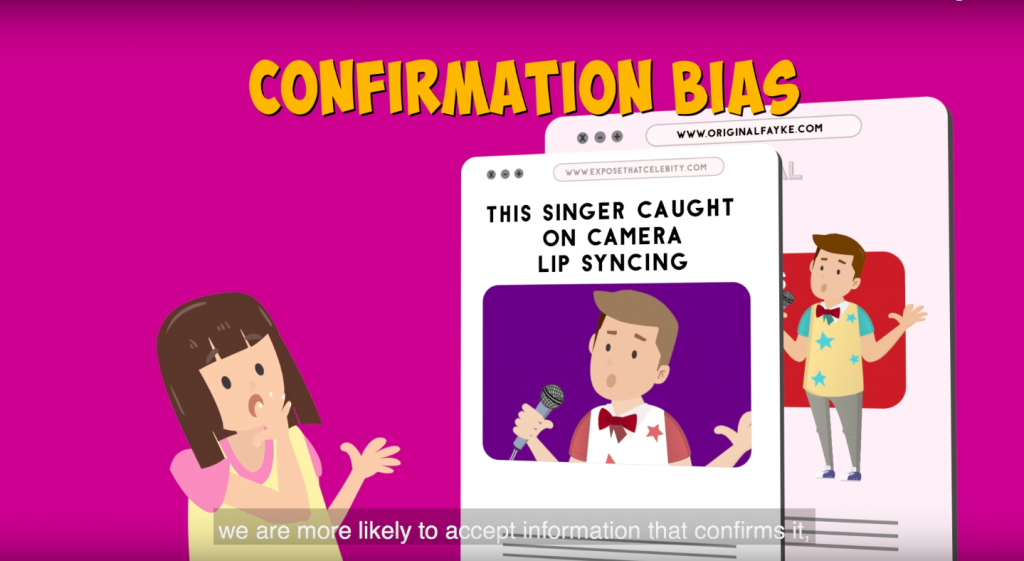
So, in the interest of transparency, my biases are as such: China’s social policy towards Uyghurs is absolutely deplorable, the police state in Xinjiang is a dystopian nightmare, I sympathise strongly with the idealistic youth movement in Hong Kong. I also consider ST to be less-than-independent; not as truthful as The Guardian, but neither is it the propaganda machine of China Daily.
In short, I’m the sort of person who is primed to believe said forum post without a second thought. But biases, once acknowledged, should be left at the door.
Under the microscope: Examine the text
The article “praising China’s Uyghur concentration camps” is, to be honest, the more scandalous. Skimming through, one gets the impression that ST Associate Editor Ravi Velloor is supportive of detention camps in Xinjiang. After visiting a camp on the invitation of Chinese state media, he uses phrases like “there were no security guards… or barbed wires”, “stories of the inmates did not seem contrived”, and, incredibly, “the place had the air of a boarding school”.
Reading these phrases will have you nodding in agreement or your brows furrowed in rage, depending on your political leanings. Let’s cut the waffle: the display camps shown to ‘foreign media’ will never be a full representation of their true nature.
If you read on, Mr Velloor later recognises this reality. But there are other segments of his article where he expresses understanding for the State’s need to “rehabilitate” a minority whose ideology is “anathema to the Chinese state”. It seems that he toes the line between fully denying the ‘Western’ media reports or fully drinking the CCP’s Kool-Aid.
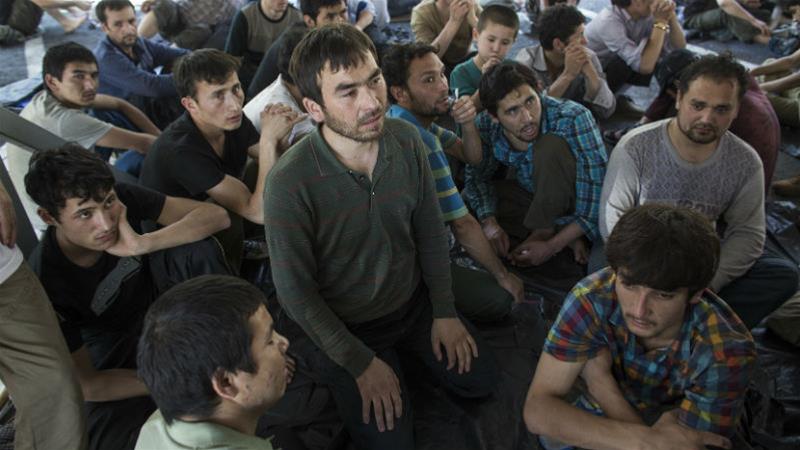
Documentary videos by the BBC and VICE show how barbed wire is removed, walls and watchtowers torn down in anticipation of foreign reporters’ arrival to any camp. In these videos, terrified Uyghur citizens huddle around markets and police confront reporters at every turn, blocking their view of other black sites.
More importantly, the videos also contain testimony of Uyghurs who were detained at the camps, and the ‘terrorist activities’ they were detained for: downloading the Qur’an, wearing a veil, and contacting their relatives in Central Asian countries. They describe the numerous tortures that are inflicted upon them for these ‘crimes’. It seems more and more that the ‘dangerous ideology’ that Mr Velloor describes are simply moderate Islamic practices—which Muslims practise freely here at home.
Multiple reports from international rights groups and news agencies (some of whom Mr Velloor used to work for) have denounced the camps. So why the semi-neutral, not-quite-disagreeable tone?
Follow the paper: Find the motive
So, what’s Mr Velloor’s take on other China-related issues? His editorial on Hong Kong’s protests takes a similarly neutral tone. However, because the protests (which have on occasion turned violent) seem far less black-and-white than Uyghur concentration camps, his take on them stings less to read.
But the paper for which he is an editor seems host to some less neutral opinions. Gentlemen like Leslie Fong assert unconditionally that there was never any reason to fear Hong Kong’s extradition bill, and any unease around it was stirred by malicious actors, going so far as to claim the yellow construction helmets protesters are wearing is proof of ‘planned, coordinated, well-funded’ violent action. A tenuous link at best.
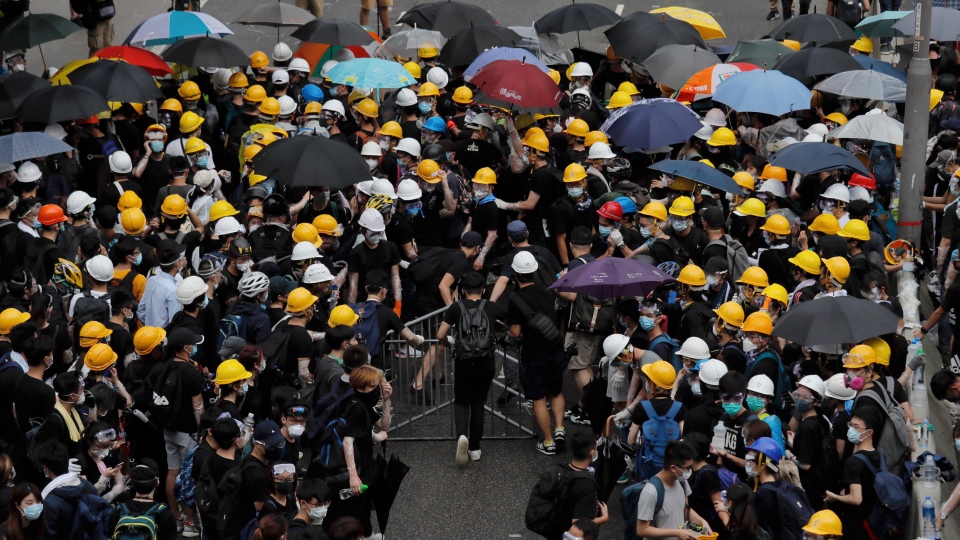
It’s hardly surprising, however, given that a quick pop over to Mr Fong’s South China Morning Post author-page reveals an unflagging streak of pro-Beijing headlines. What’s less obvious is why ST would invite such an editorial—unless they hoped to strike a similar pose.
Given all this evidence, the forum poster seems correct in his assessment: Singapore’s national broadsheet is biased towards China. Sherlock can hang up his coat; case closed.
The big twist: The ‘truth’ is hardly elementary
While my existing bias strongly encourages me to confirm this narrative, the truth is that ST’s coverage, as a whole, is much more neutral. While these two editorials are more recent, they have syndicated reports from the New York Times and Bloomberg that criticise China’s handling of Xinjiang. ST’s own reporting from the ground in Hong Kong has fairly presented the views of Hong Kong’s youth.
So now we get to Sherlock’s Last Question, which, like Fermat’s Last Theorem, may long lie unsolved: What’s the motive?
The answer: The Straits Times may have a complicated relationship with the truth. On one hand, I do not allege that it lies or reports disingenuously. On the other hand, they are ‘balanced’ when covering Beijing’s flimsy claims.
Ironically, the original forum post, while largely inaccurate, gives a major clue: ‘national broadsheet’. While us in Singapore may not read ST as much as we used to, do you know who does? Foreign intelligence, diplomats, and governments. And they read it as a reflection of where Singapore stands on an array of issues.
Insofar as Singapore wishes to paint relationships with foreign governments in a positive light, the national broadsheet ‘has’ to be dead neutral in its coverage of their internal affairs. It’s hard to respect reality when you have to respect some outright lies.
And this is why media literacy is important. Because not everything falls neatly into the categories of ‘fake news’ and, er, ‘true news’. There are shades of grey to the agendas of writers, editors, newspapers and (surprise surprise!) governments.
Reading the news is a mind-game: everybody wants something, and you owe it to yourself to find out what that is.

